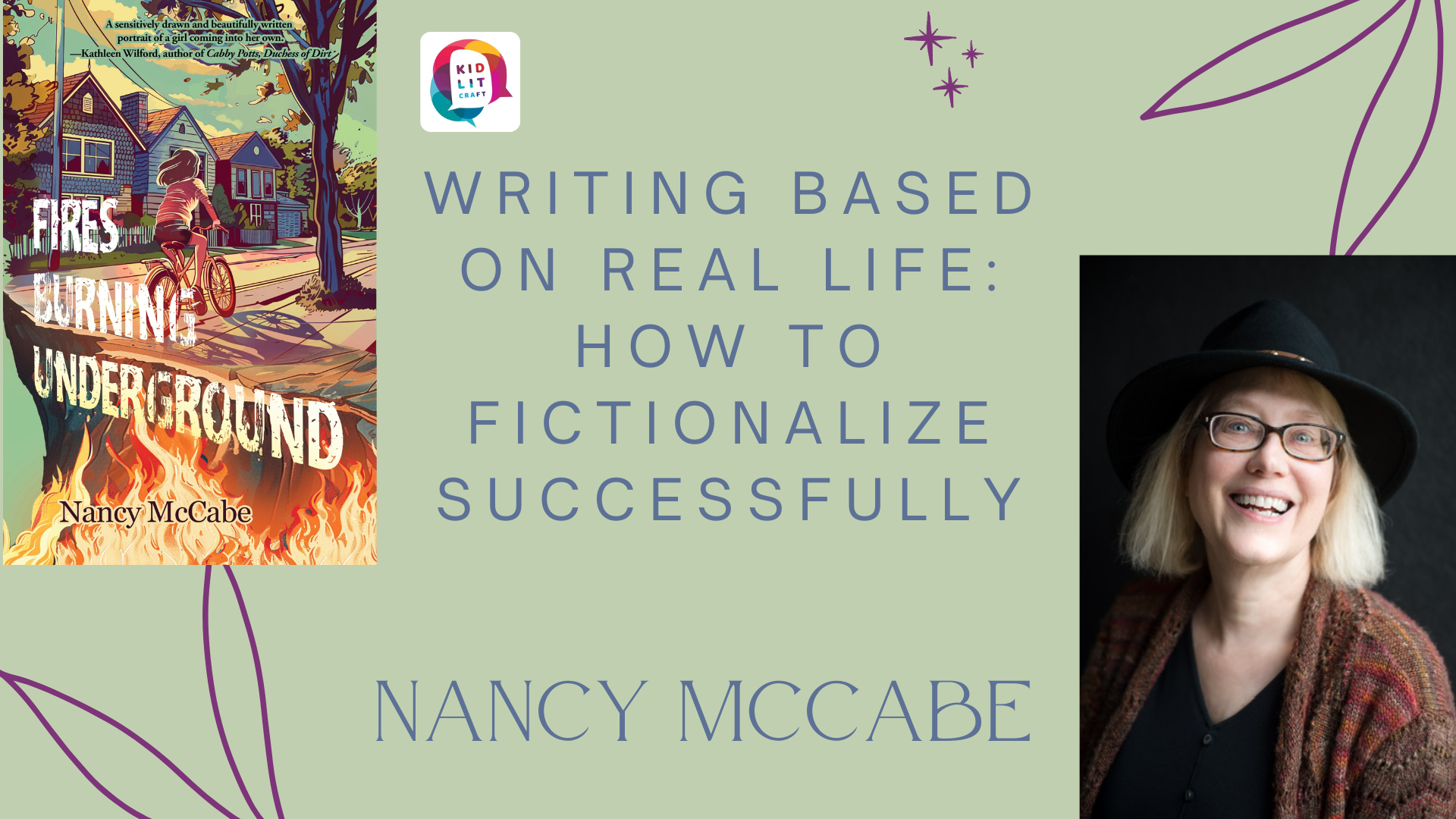Craft Articles
Join us in exploring others’ craft and building our own.
Here you will find explorations of mentor texts – articles that dive into specific craft elements in published books, interviews with authors, and tips on growing and improving as a writer.
Disclaimer: Some posts include bookshop.org affiliate links. Use the links to support KidLit Craft and local bookstores, at no additional cost to you.
Browse the Blog

Writing Based on Real Life: How to Fictionalize Successfully
Converting my story from a personal one to a piece of fiction was the best choice. Not only did it strengthen the story I wanted to tell, but it reminded me that sometimes fiction is the best way to discover the truths of our lives.

Writing Engaging Young Adult Mysteries That Tackle Emotional Health Issues
“Mysteries are natural places to explore issues of emotional health, because the behavior of people who harm others can generally be traced back to their own emotional problems and issues, and of course their actions have a huge impact on the protagonists of our stories.”

Jessie Janowitz: Give Your Narrator a Secret
“Understanding your main character’s backstory is essential to the first-person voice. We filter the world through our unique personal experiences, . . . we refer to places we’ve been, people we’ve met, food we’ve eaten, etc. If we don’t know our narrator’s history, we can’t begin to know the language they’d use to describe it.”

In Summary: Backstory
Backstory is a necessary part of telling a story, but how much to include and what to leave out can be complicated. It's rare in books for kids to have many pages of backstory in a row (though Crenshaw by Katherine Applegate does it with style). At KidLit Craft, we've explored backstory in many categories and genres. Here are our favorite posts about backstory.

Backstory in a Fast-Paced Novel: Amari and the Night Brothers by B. B. Alston
Amari and the Night Brothers by B. B. Alston is an excellent mentor text for how to interweave backstory, using multiple techniques, without slowing down the story one bit.

Backstory for Writers
As writers, we hear all the time that you absolutely have to develop your characters’ backstories. We can spend a lot of time laboring over our characters’ pasts--creating, inventing, discovering--only to have someone read a draft and tell us: “Take out all the backstory!” Too much backstory can drag the pace of a story. Too little, and characters seem unmoored and unmotivated. So what to do?

Six Things Your Character with a Mental Illness Wants You to Know
Many kids that experience mental illnesses start developing symptoms as young teens--just when they’re at the age to encounter Young Adult literature. Through YA novels, writers can reach readers at this critical time. Young adult books can be a balm to teens struggling with mental health, offering disability representation, much-needed hope, and comfort in knowing that they’ll come through their darkest days… if we follow a few key guidelines. These six pointers are indispensable in creating an empathetic, accurate, and hopeful book with mental health themes.




